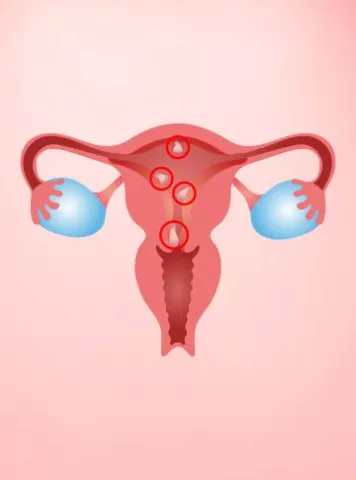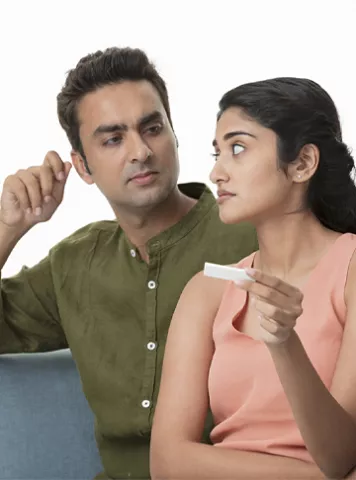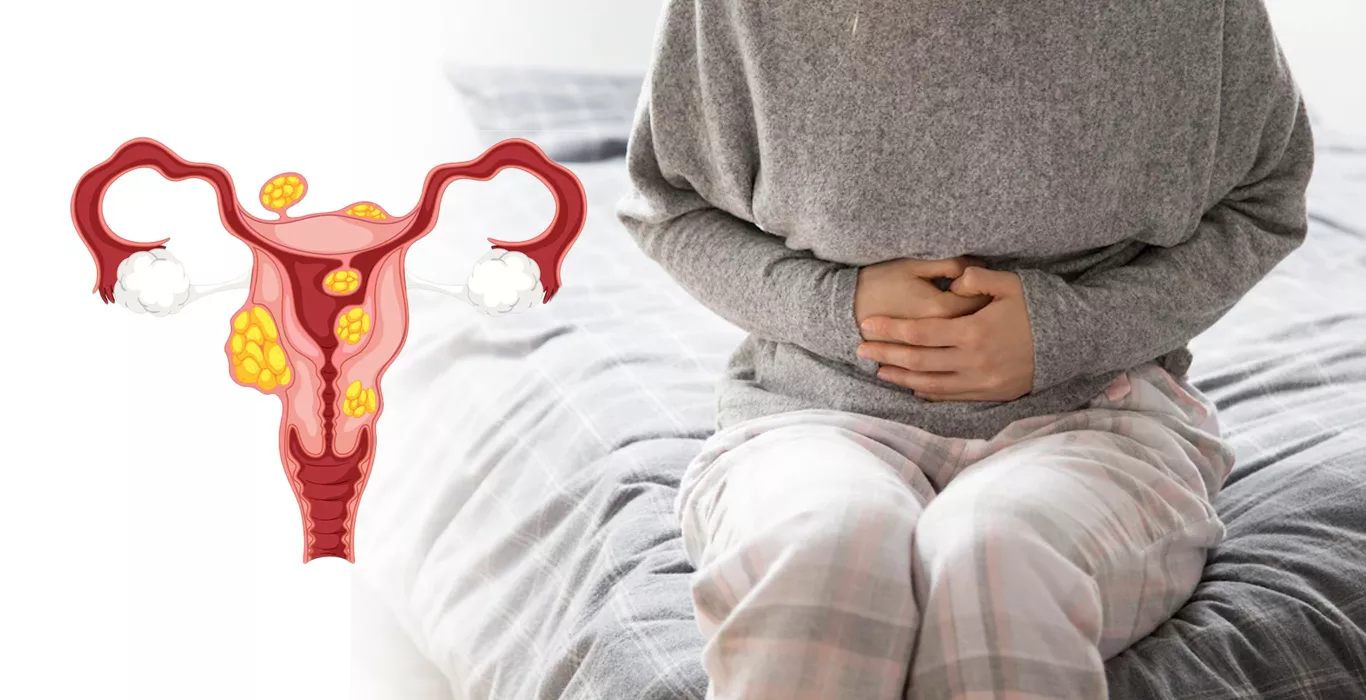Synopsis
Fibroids are one type of smooth muscle tumour of uterus. Usually it looks like fibrous muscular structure. It is very common problem for women in their life time.
Fibroids And Infertility
1. What are the fibroids?
Fibroids are one type of smooth muscle tumour of uterus. Usually it looks like fibrous muscular structure. It is very common problem for women in their life time.
2. Is it cancerous or malignant?
Although fibroids are tumour but these are generally non malignant or non cancerous. In very rare instances it becomes cancerous or malignant. Grossly fibroids are not closely related with malignancy.
3. What are the different names of fibroid?
You may notice different names of fibroids in medical records or documents eg, uterine myoma, fibromyoma, liomyoma etc
4. How many types of fibroid seen?
There are various types of fibroids. But most commonly we see 3 types of fibroids depending of their location in uterus
a. Submucosal– when it develops and popping out in the inner uterine cavity
b. Intramural– when fibroid develops in milled muscular layer
c. Subserosal– these fibroids develops in the outer layers of uterus
5. How fibroid causes infertility?
Not all types of fibroid causes infertility. Some of them causes depending on their location, type, size and number. Most important causes are
a. Some fibroids are big enough to distort normal size and shape of uterus and endometrial cavity causing difficulty in embryo implantation
b. Sometimes sperm and ovum cannot meet each other if fibroids located in the region of fallopian tube origin causing mechanical obstruction.
c. Some fibroid mechanically alters the inner lining where embryo attaches. Some of them also changes local chemical balance and gene expression of inner lining.
d. Large fibroid changes blood supply of uterus
e. Some fibroid due to their special location in uterus alters normal contraction relaxation cycle of uterus
f. Large fibroids in lower uterine location or cervical fibroid hampers sperm entry in uterus
6. Treatment
Treatment of fibroid is basically fine orchestration between your problems and special character of fibroid like size ,number, location and type. Not all types of fibroids need treatment. Some of them easily managed by medical treatments. But in some of them such medical treatment is not only ineffective but also contraindicated. for such difficult fibroids surgical management is needed for permanent removal from body.
Surgical approach also very much depended on fibroids size, number, location and type. Innermost fibroids are easily removed by hysteroscopy myomectomy. No hospital admission is needed for such operation and you can go home on the day of operation. This kind of operation usually painless and not a single stitch given.
Rest of the fibroids can be removed by microsurgery either by laparoscopy or by robotic surgery. These operations are minimally invasive, less painful and needs hospitalisation for one day. Only few stitches will be there in the abdomen and you can resume your daily activities within few days after operation. Some sort of time to be given to uterus for healing before starting any kind of infertility treatment.
7. So fibroids at a glance
i. You are not alone if you have fibroid. Nearly 80% of women suffers from fibroid in their lifetime and it is a very common problem.
ii. Not all kind of fibroid causes problems. Some of the fibroid remains silent for life long. Few fibroids depending on their location, type, size and number causes infertility
iii. Every types of fibroids causing infertility does not need surgery. Some of them easily managed by medical treatment. But for some difficult fibroids surgery is need. Taking a decision for surgery is also challenging as any kind of surgery is not devoid of risks. Such surgeries may be very easy or may be very complicated also.
iv. Such surgeries are very much effective and safe in experienced hands.
v. Proper treatment of fibroids increases the chance of pregnancies both in natural way as well as in IVF also.
So most important is the proper diagnosis and correct treatment plan which should be taken after careful discussion with infertility specialist.
Comments
Articles
2023


World AIDS Vaccine Day 2023: Can HIV & AIDS affect fertility or your infant’s health?
World AIDS Vaccine Day is observed every year on the 18th of May to create awa...
2023


Male Infertility Infertility Tips
Hyperspermia: Causes, Symptoms, Diagnosis & Treatment
What is Hyperspermia? Hyperspermia is a condition where an individual produ...


Guide to infertility treatments Infertility Tips
पीआईडी: पेल्विक इनफ्लैमेटरी डिजीज और निःसंतानता
पीआईडी - पेल्विक इनफ्लैमेटरी �...
2022


Infertility Tips Uterine Fibroids
Endometrial Polyps (Uterine Polyps)
What are Endometrial Polyps (Uterine Polyps)? Endometrial polyps, often ref...
2022


Female Infertility Infertility Tips
Why do You Need Fertility Treatment
As we all know infertility rate is constantly rising in our society day by day...
2022


Cesarean Section Vs Natural Birth
Surrogacy centers in Delhi and Infertility centers in Pune state that there ar...
2022


ನಿಮಗೆ ಹುಟ್ಟಲಿರುವ ಮಗುವನ್ನು ಅರ್ಥಮಾಡಿಕೊಳ್ಳುವುದು: ಗರ್ಭದಲ್ಲಿ ಮಗು ಹೇಗೆ ಬೆಳೆಯುತ್ತದೆ!
ವೀರ್ಯವು ಮೊಟ್ಟೆಯನ್ನು ಭೇಟಿಮಾಡ�...
2022


Diet Chart for Pregnant Women: The Right Food for Moms-To-Be
Pregnancy Food Chart 1. The daily diet must include the right amount of pro...
2022


Can i become pregnant while my tubes are tied?
Pregnancy is one of the most important phases in women’s life and is conside...
2022


9 days towards 9 months
A couple after facing all odds finally come knocking the door of medicine and ...
Tools to help you plan better
Get quick understanding of your fertility cycle and accordingly make a schedule to track it















